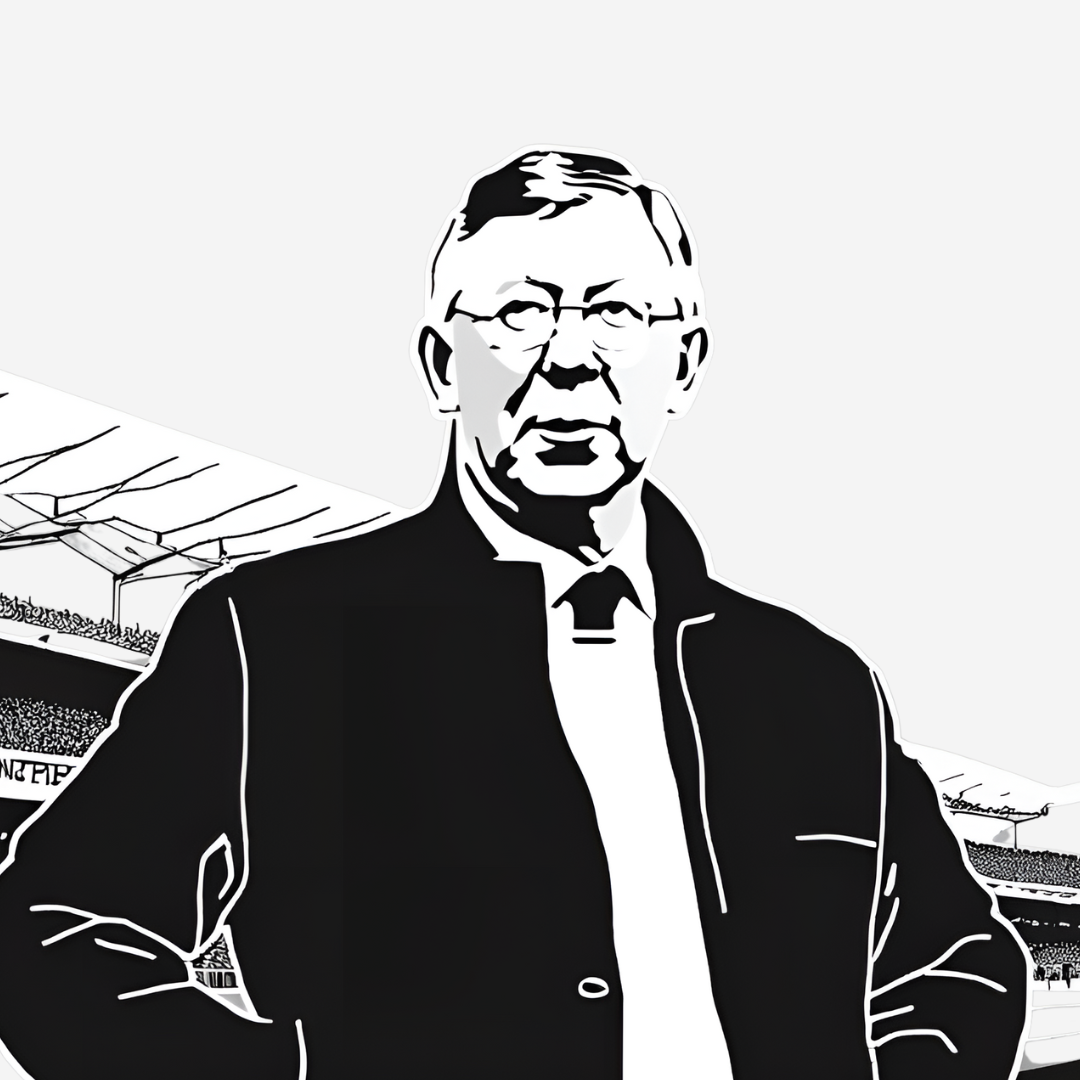Born in Glasgow, Scotland, on December 31, 1941, Ferguson became renowned for his tenure as the manager of Manchester United, where he led the club to unprecedented success over 26 years (1986–2013).
Early Life and Playing Career
Ferguson grew up in a working-class family in the Govan district of Glasgow. He started his footballing career as a player, primarily playing as a forward. He played for several Scottish clubs, including:
- Queen’s Park
- St Johnstone
- Dunfermline Athletic
- Rangers (one of Scotland’s biggest clubs)
- Falkirk
- Ayr United
Although he had a respectable playing career, Ferguson truly made his mark in football through management.
Management Career
Early Success in Scotland
Ferguson started his managerial career at East Stirlingshire in 1974 and moved to St. Mirren, where he helped the club win the Scottish First Division title in 1977. His big breakthrough came when he took over at Aberdeen in 1978, where he shocked Scottish football by breaking the Old Firm dominance (Celtic and Rangers) and winning:
- Three Scottish league titles
- Four Scottish Cups
- The UEFA Cup Winners’ Cup in 1983, by defeating Real Madrid in the final. This victory made Aberdeen one of the top clubs in Europe under his guidance.
Manchester United
In 1986, Ferguson took over Manchester United, a club struggling to recapture its former glory. After a challenging first few years, Ferguson built a dynasty at United, transforming the club into a global footballing powerhouse. His achievements include:
- 13 Premier League titles, which solidified United as the dominant force in English football.
- 5 FA Cups
- 4 League Cups
- 2 UEFA Champions League titles (1999, 2008)
- A historic treble in 1999 (Premier League, FA Cup, Champions League), a feat still unmatched in English football.
- Numerous other domestic and international trophies, including the FIFA Club World Cup.
Ferguson was known for his tactical acumen, leadership skills, and an ability to rebuild successful teams over time. He managed iconic players such as Eric Cantona, Ryan Giggs, Paul Scholes, Roy Keane, Cristiano Ronaldo, and Wayne Rooney. Ferguson was also famous for his “hairdryer treatment,” an intense method of motivating players by delivering sharp criticism when needed.
Legacy
Sir Alex Ferguson’s management style was defined by his keen eye for talent, adaptability to modern football, and sheer determination. He retired in 2013, ending a managerial career that spanned over 1,500 games for Manchester United and brought the club to the pinnacle of European football.
His influence extended far beyond the pitch, as he shaped football culture and set standards for management. He was knighted in 1999 for his services to the game, and his autobiography is widely regarded as a fascinating insight into both his personal and professional life.
Post-Retirement
Since retiring, Ferguson has remained involved with Manchester United as an ambassador and director. He also overcame a life-threatening brain haemorrhage in 2018, a health battle that endeared him even more to football fans worldwide.
Sir Alex Ferguson’s name will always be synonymous with football excellence, and his impact on the game is still felt today.


